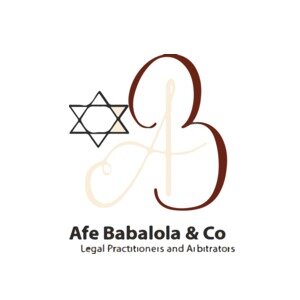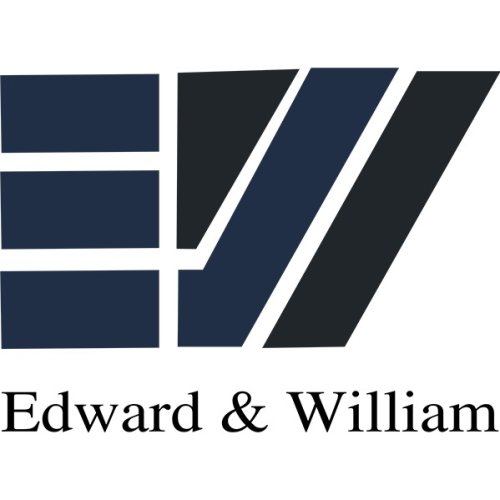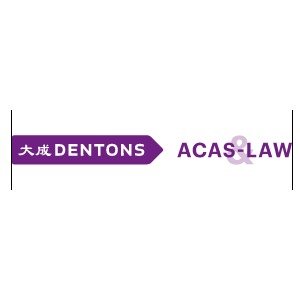Best Project Finance Lawyers in Port Harcourt
Share your needs with us, get contacted by law firms.
Free. Takes 2 min.
List of the best lawyers in Port Harcourt, Nigeria
About Project Finance Law in Port Harcourt, Nigeria
Project Finance is a specialized area of finance that involves the long-term funding of infrastructure and industrial projects based on the projected cash flows of the project, rather than the balance sheets of its sponsors. In Port Harcourt, Nigeria, project finance plays a pivotal role in the development of energy, oil and gas, transport, power, and other infrastructure sectors. The region is known for its vibrant hydrocarbons industry and a growing need for large-scale projects, making project finance an essential legal and financial tool. The legal aspects involve navigating through regulatory approvals, contractual structures, and risk allocation to secure funding for these projects.
Why You May Need a Lawyer
There are several situations where legal assistance becomes vital in project finance in Port Harcourt:
- You are planning to develop or invest in a large-scale infrastructure project and need to structure the financing.
- You are seeking legal advice on how to comply with local regulatory frameworks, especially in sectors such as oil and gas, power, or transport.
- You need to draft or review complex agreements like loan contracts, joint venture agreements, engineering procurement and construction contracts (EPC), or operation and maintenance agreements (O&M).
- There are multiple local and international investors, contractors, or lenders involved, requiring negotiations and the alignment of interests.
- You require support in carrying out due diligence, managing project risks, or resolving disputes that may arise during the project lifecycle.
- You need guidance on tax implications, foreign exchange controls, or the repatriation of profits.
Local Laws Overview
Project finance in Port Harcourt, Nigeria, is governed by a mixture of federal and state laws, along with sector-specific regulations. Key legal instruments and aspects include:
- Companies and Allied Matters Act (CAMA): Governs incorporation and operation of project companies.
- Investment and Securities Act, 2007: Regulates capital market activities, including project bonds and security arrangements.
- Pioneer Status and Tax Incentives: Available for eligible projects under the Nigerian Investment Promotion Commission Act and various sectoral policies.
- Foreign Exchange (Monitoring and Miscellaneous Provisions) Act: Addresses foreign investment, currency exchange, and repatriation of funds.
- Sector-specific Laws: Petroleum Industry Act for oil and gas; Electric Power Sector Reform Act for power projects; Public Procurement Act for government projects.
- Land Use Act: Governs the acquisition and use of land which is often central to most project financings.
- Local Content Laws: Mandate specific levels of local participation in certain sectors, particularly oil and gas (Nigerian Oil and Gas Industry Content Development Act).
- Environmental Laws: National and Rivers State-specific environmental laws require Environmental Impact Assessments for new projects.
Engaging with legal professionals who understand the interplay of these laws is essential to structure projects efficiently and remain compliant.
Frequently Asked Questions
What is project finance?
Project finance is a method of funding projects where repayment comes primarily from the project's cash flow, rather than from the sponsors’ balance sheets or personal guarantees.
What type of projects use project finance in Port Harcourt?
Common examples include oil and gas facilities, power plants, ports, roads, water supply schemes, and large manufacturing plants.
What are the main sources of funding for project finance in Nigeria?
Funding typically comes from banks, development finance institutions, export credit agencies, private equity, bonds, and sometimes public sector participation.
How does the regulatory environment affect project finance in Port Harcourt?
The regulatory framework, which includes federal and state laws, sectoral permits, and environmental regulations, directly impacts project approvals, financing terms, and project execution.
Are foreign investors allowed to participate in project finance deals?
Yes, foreign investors can participate and even own project finance companies in most sectors, subject to compliance with Nigerian laws on investment and foreign exchange.
What is the importance of local content requirements?
Local content laws ensure that Nigerian individuals and companies participate in major projects, especially in oil and gas. This affects procurement, staffing, and subcontracting.
What are the major risks involved in project finance?
Risks include construction delays, cost overruns, regulatory changes, payment defaults, foreign exchange fluctuations, and political instability.
How is land usually acquired for project finance projects in Port Harcourt?
Land is typically acquired through the Rivers State government in line with the Land Use Act. This process involves obtaining proper consents and compensation for previous occupants.
What legal documents are essential for a project finance transaction?
Key documents include loan agreements, security documentation, shareholder agreements, EPC contracts, operation and maintenance agreements, and direct agreements with key counterparties.
Why is due diligence important in project finance?
Due diligence assesses the legal, financial, and technical viability of the project, helps identify potential risks, and ensures compliance with applicable laws and standards.
Additional Resources
To further understand project finance and obtain legal advice, consider reaching out to the following organizations and bodies:
- Nigerian Investment Promotion Commission (NIPC)
- Rivers State Ministry of Commerce and Industry
- Federal Ministry of Finance
- Securities and Exchange Commission (SEC) Nigeria
- Nigerian Bar Association (NBA) Port Harcourt Branch
- Nigerian Content Development and Monitoring Board (NCDMB)
- Infrastructure Concession Regulatory Commission (ICRC)
You may also contact reputable law firms in Port Harcourt that specialize in project finance or use the Nigerian Bar Association directory to find qualified professionals.
Next Steps
If you are considering or are involved in a project finance transaction in Port Harcourt, Nigeria, follow these recommended steps:
- Clearly define the project scope and identify all participants and stakeholders.
- Consult with a legal professional experienced in project finance as early as possible in the planning process.
- Gather all necessary documentation, such as permits, ownership titles, and corporate records.
- Discuss your project’s specifics to identify relevant laws, taxes, and compliance requirements.
- Request a legal due diligence review to identify and mitigate potential legal risks.
- Work with your lawyer to negotiate and draft all critical agreements and ensure they are tailored to local legal requirements.
- Stay in regular contact with your legal advisor to handle any issues that arise during project implementation.
Legal issues in project finance can be complex, so involving an experienced lawyer will increase your chances of project success and reduce exposure to potential risks and disputes.
Lawzana helps you find the best lawyers and law firms in Port Harcourt through a curated and pre-screened list of qualified legal professionals. Our platform offers rankings and detailed profiles of attorneys and law firms, allowing you to compare based on practice areas, including Project Finance, experience, and client feedback.
Each profile includes a description of the firm's areas of practice, client reviews, team members and partners, year of establishment, spoken languages, office locations, contact information, social media presence, and any published articles or resources. Most firms on our platform speak English and are experienced in both local and international legal matters.
Get a quote from top-rated law firms in Port Harcourt, Nigeria — quickly, securely, and without unnecessary hassle.
Disclaimer:
The information provided on this page is for general informational purposes only and does not constitute legal advice. While we strive to ensure the accuracy and relevance of the content, legal information may change over time, and interpretations of the law can vary. You should always consult with a qualified legal professional for advice specific to your situation.
We disclaim all liability for actions taken or not taken based on the content of this page. If you believe any information is incorrect or outdated, please contact us, and we will review and update it where appropriate.

















